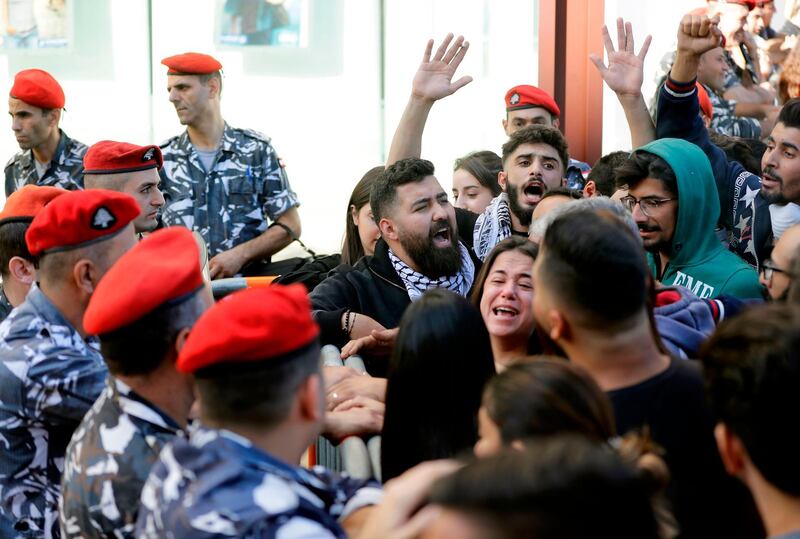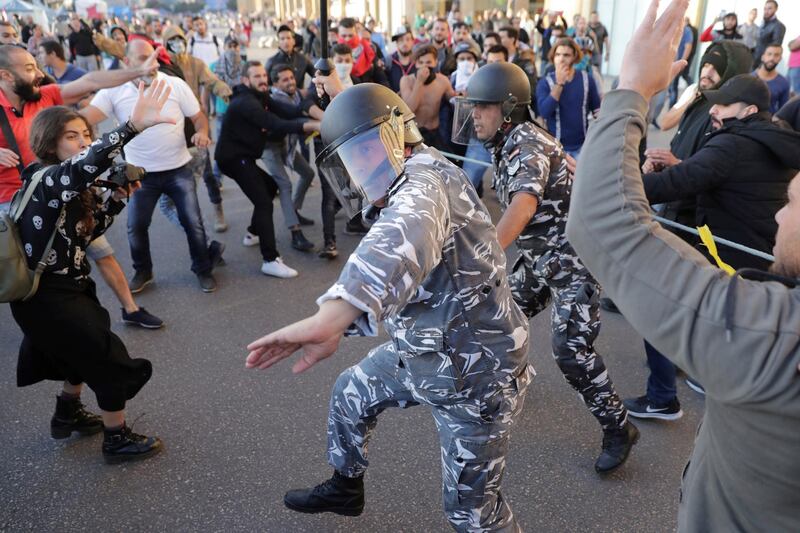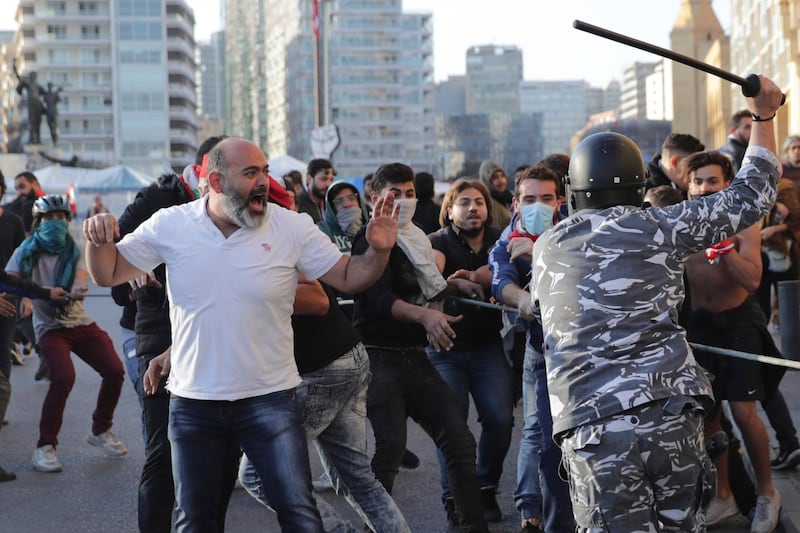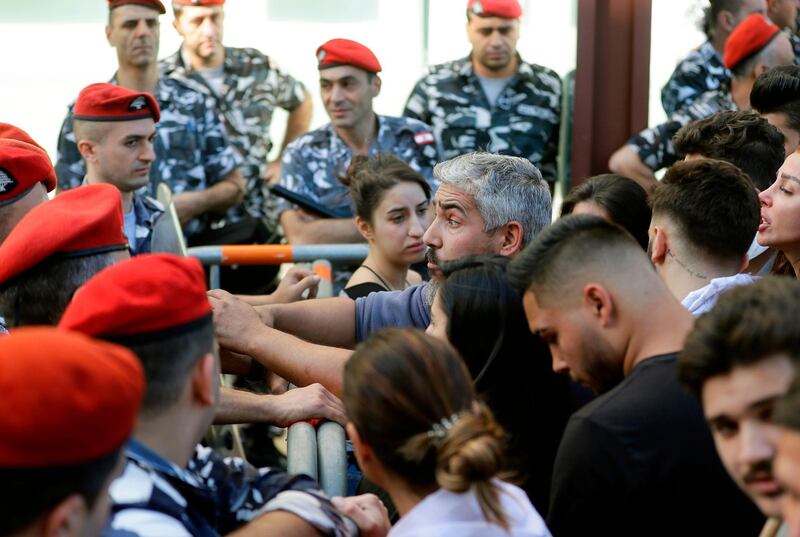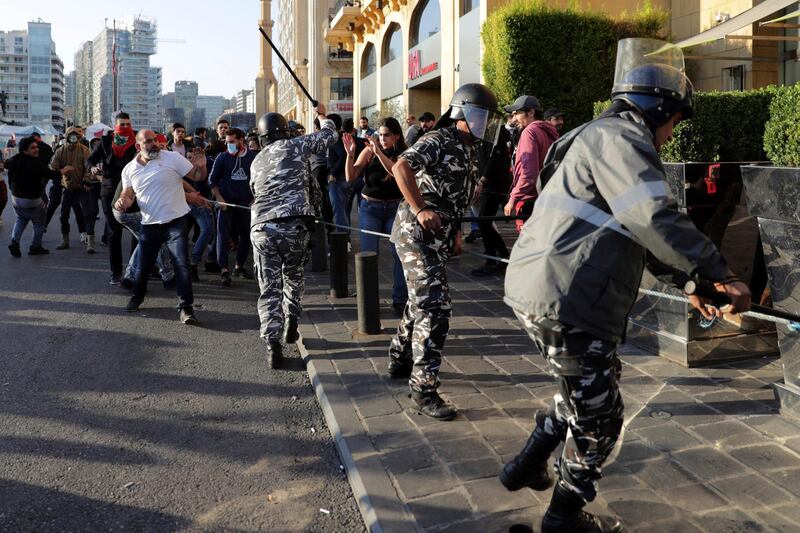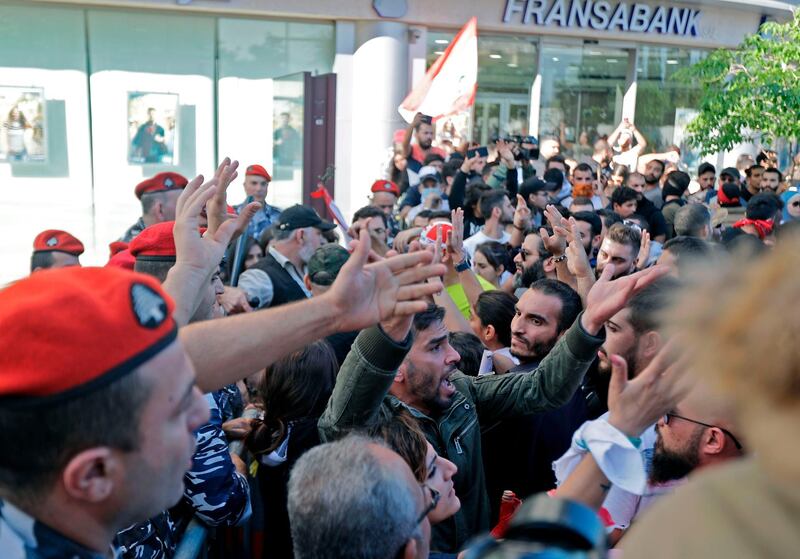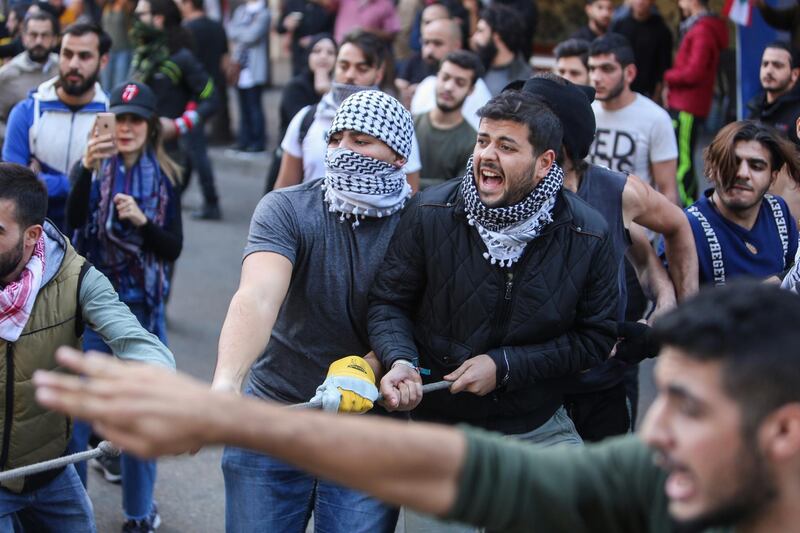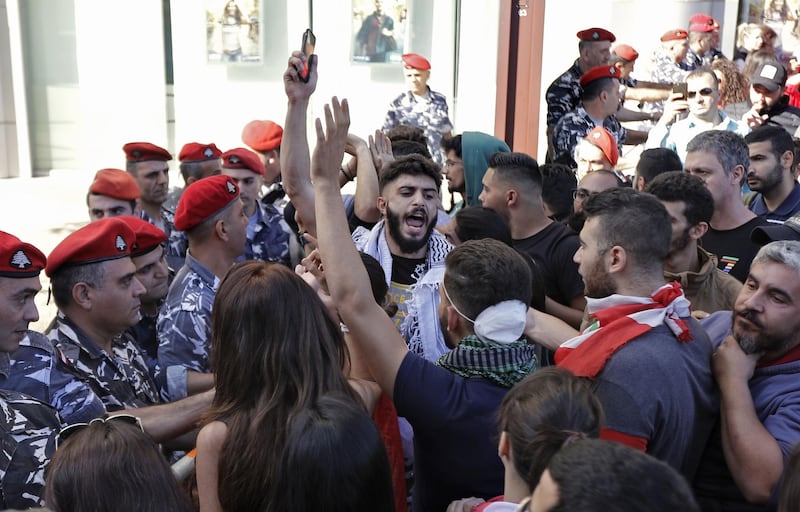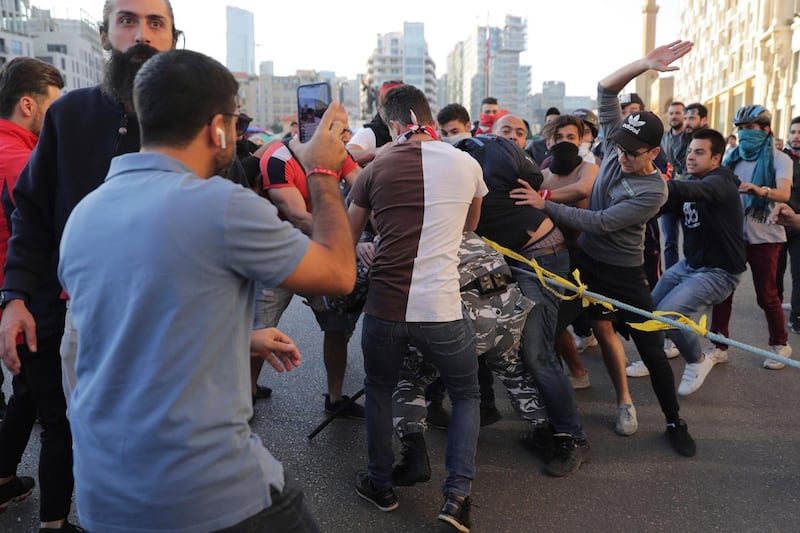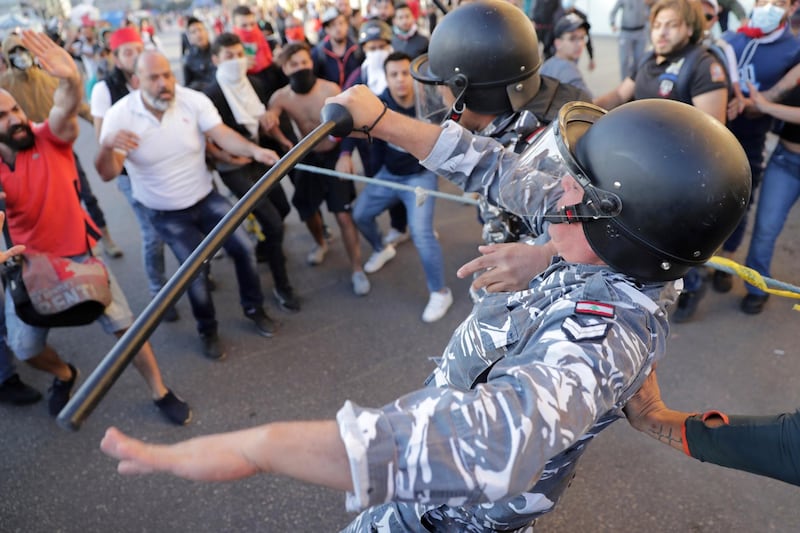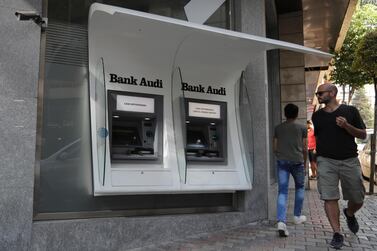Lebanon's government once again postponed a parliamentary session on Tuesday as demonstrators scuffled with riot police while attempting to block MPs from entering the government building.
The house was due to meet on Tuesday for a legislative session despite opposition from demonstrators who are outraged at the delay in forming a new Cabinet several weeks after protests began. They have raised questions about the constitutionality of the session in the absence of a government.
Lawmakers gave no indication as to when the session may be held in future.
Hundreds of young people blocked all entrances to the parliament building, vowing to disrupt the session. Despite women standing as barriers between the two sides, clashes ensued.
The session was scheduled to be held last Tuesday but was postponed by the parliament speaker for security reasons amid the nationwide unrest.
Sitting on the pavement in Beirut’s city centre, Rita Hanna, 43, took a drag on her cigarette.
"Right now, I may be taking a short break, but I'll never get tired of protesting. We will live in dignity or we will die," she told The National, a bandanna printed with the Lebanese flag tied around her head.
Anti-riot police watched her wearily as she spoke, standing guard in front of a barbed wire fence that blocked one of the main entrances to downtown Beirut in front of Le Grey, a luxury hotel.
Mrs Hanna was one of the thousands of protesters who clashed with anti-riot police and blocked entrances to Lebanon’s Parliament on Tuesday morning, forcing it to postpone indefinitely two parliamentary sessions due to the "exceptional circumstances."
It is the second time in two weeks that parliament had to cancel sessions because of protests.
Crowds gathered as early as 7.30am to stop MPs from attending the parliamentary sessions scheduled for 11am and 1pm, blocking roads with their cars and checking ambulances to make sure no politician was inside. The Lebanese Red Cross denied rumours that its ambulances were used to smuggle MPs into parliament.
However, at least one politician clashed with protesters as he attempted to force his way through in a convoy of several cars with tinted glass windows. In videos widely shared on social media, shots appeared to be fired in the air from one of the cars, although there were no reports of injuries or casualties.
Protesters confirmed the incident but were unsure which politician was inside the convoy. Caretaker Foreign Minister Gebran Bassil, the most unpopular political figure with protesters, denied that it was his. Other MPs attempted to negotiate their way in.
Several protesters blocking the entrance to parliament near the United Nations headquarters told The National that they stopped Hezbollah MP Ali Ammar from entering on foot. One of them said that they chanted popular protest songs at him such as "the parliament is blocked, oh handsome one", and "the people are the red line".
“We then saw pictures of him riding a motorcycle to get in, but we are unsure if he managed,” said Jennifer Harb, 25.
Protesters also attempted to remove barbed wire fences that had been set up near parliament, leading to violent scuffles with anti-riot police. At least two people were arrested, said one witness, Rabab Nasser, 24.
“This is the blood of one of them,” she said, showing the palms of her hands and looking dazed as she sat in a small park near the UN headquarters.
Dozens of people also banged loudly against scaffolding outside a dilapidated theatre that has been abandoned since the civil war.
“We are here so that politicians cannot ignore us,” said Patricia Gebrayel, 26, a marketing professional.
Despite the continued protests, some progress appears to be being made. Banks reopened for the first time in a week after announcing temporary steps, such as a weekly cap of US$1,000 on withdrawals of hard currency and transfers abroad limited to urgent personal expenses.
Seeking to avoid capital flight, the Association of Banks in Lebanon announced on Sunday that cash withdrawals would be limited to $1,000 a week and transfers abroad would be restricted to urgent personal spending only.
The central bank has said deposits are safe and that it has the capacity to maintain the value of the Lebanese pound, which is pegged to the US dollar.
In Beirut’s Hamra district, about 50 people were waiting at a branch of Blom Bank shortly after it opened, a witness said.
In the Sodeco area of the capital, about 20 people each were waiting at another branch of Blom Bank and at a branch of Bank Audi, a witness said.
“Everyone has a lack of trust, there’s a state of panic, and people’s feelings are justifiable because no one is giving them any trust,” said a customer at the bank, who declined to give his name.
In the southern city of Sidon, about 50 people were waiting at a branch of Blom Bank before opening, a witness said.
* Agencies contributed to this report

